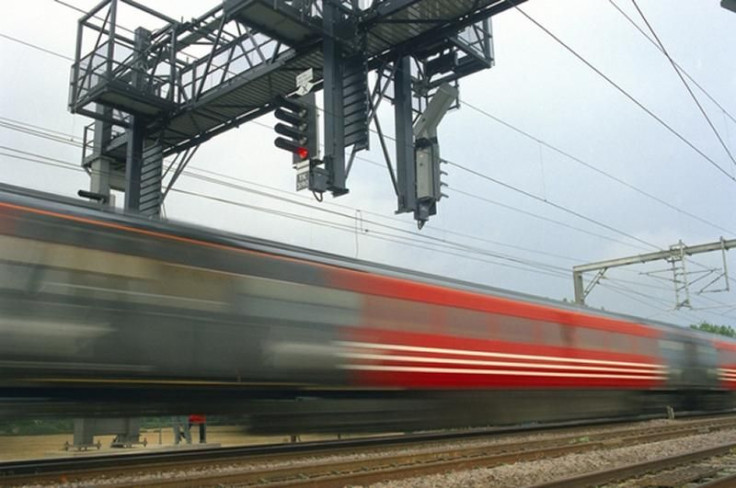British Railway Unions Declare War On Tories’ Plan To Make Strikes Illegal

KEY POINTS
- Tories want railways to agree to a minimum service guarantee during strikes
- Railway unions are worried about job security of train guards
- A strike against the South Western Railway is is underway
The National Union of Rail, Maritime and Transport Workers, better known as RMT, said it will protest plans by the new Conservative government of Boris Johnson to outlaw strikes by railway workers.
Under the Conservatives’ plan, train operators and unions will have to agree to run a minimum number of services during a strike. In the absence of a minimum service agreement, any strike would be declared illegal.
The Conservatives said Belgium, France, Italy and Spain have similar laws.
“Rail strikes have a real impact on people’s lives. They seriously inconvenience businesses and the public, damage the economy, and force people to use less sustainable means of transport,” said Grant Shapps, the transport secretary.
“The ability of a few people to prevent everyone from being able to earn a living has to come to an end. The new law will prevent London being brought to a standstill, with all the additional environmental damage done by people reverting to cars.”
Unions representing transport workers were outraged.
"It hasn't taken long for the true colors of this new Tory government to emerge and tomorrow we will be kicking off the fight back against their new raft of anti-union laws,” RMT general secretary Mick Cash said Wednesday. “Nobody should be under any illusions about the scale of the threat now being lined up against the trade union movement. Banning strikes and denying workers the basic human right to withdraw their labor has been the hallmark of hard right, authoritarian regimes throughout history.”
Mick Whelan, general secretary of the Associated Society of Locomotive Engineers and Firemen, better known as ASLEF, said: “This is nothing less than a declaration of war on transport workers. No trade unionist takes industrial action lightly, but we need that option to prevent bad employers riding roughshod over our working conditions and safety. This idea shows that this right-wing authoritarian Tory government sees transport workers as the enemy, not as stakeholders in the rail industry.”
Whelan added: “The right to strike – to withdraw your labor – is a fundamental human right. We are not slaves.”
The imminent conflict between unions and the Tories occurs as a strike already has ensnared passengers who depend upon South Western Railway -- which operates commuter services in Greater London, Surrey, Hampshire, Dorset and Berkshire -- for nearly a month. Only about half of the system’s trains currently are running, thereby causing overcrowding and long delays for tens of thousands of commuters.
This particular dispute is focused on the future role and job security of train guards – the railway wants the drivers to open and shut doors, a task cureently handled by guards.
The RMT union said it wants guarantees guards “will have an integral and guaranteed role in the dispatch process,” citing safety concerns.
“Cutting the guard out of the dispatch process reduces the second person on the train to little more than a passenger in the longer term, which would give the company the option of axing them altogether at some point down the line,” Cash warned. “Both the union and the traveling public are being set up.”
In its defense, South Western Railway asserted: “We have promised that we will keep a guard on every train and that our guards will have a critical role. Both things the RMT has been asking for, so these strikes are unnecessary.”
Since 2016, U.K. rail workers have been on strike for at least 160 days, impacting 11 out of the country’s 17 railways.
A similar strike in December 2016 involving the Southern Railway cost U.K. commuters as much as £300 million (now $391 million), a research report from the University of Chichester estimated.
“The findings put the impact on the economy at about £11 million (now $14.4 million) for every day,” said Dave Cooper, professor of management and economic development. “In reality this may be higher as it does not account for other impacts such as loss of sales, impact of travel delays, staff morale and motivational issues, or individual loss of income.”
© Copyright IBTimes 2024. All rights reserved.





















